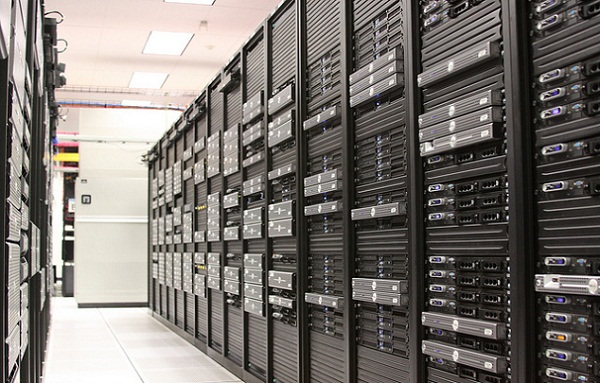Japanese Computer Named World's Fastest

Get the world’s most fascinating discoveries delivered straight to your inbox.
You are now subscribed
Your newsletter sign-up was successful
Want to add more newsletters?

Delivered Daily
Daily Newsletter
Sign up for the latest discoveries, groundbreaking research and fascinating breakthroughs that impact you and the wider world direct to your inbox.

Once a week
Life's Little Mysteries
Feed your curiosity with an exclusive mystery every week, solved with science and delivered direct to your inbox before it's seen anywhere else.

Once a week
How It Works
Sign up to our free science & technology newsletter for your weekly fix of fascinating articles, quick quizzes, amazing images, and more

Delivered daily
Space.com Newsletter
Breaking space news, the latest updates on rocket launches, skywatching events and more!

Once a month
Watch This Space
Sign up to our monthly entertainment newsletter to keep up with all our coverage of the latest sci-fi and space movies, tv shows, games and books.

Once a week
Night Sky This Week
Discover this week's must-see night sky events, moon phases, and stunning astrophotos. Sign up for our skywatching newsletter and explore the universe with us!
Join the club
Get full access to premium articles, exclusive features and a growing list of member rewards.
After a five-year drought that saw losses to rival computing superpowers American and China, Japan has again brought home the title of "world′s fastest computer."
The "K Computer," built by Fujitsu and the Riken national laboratory, runs at 8.162 petaflops, or about 70,000 times faster than an X-Box.
Despite this win, the U.S. still dominates the list, with Oak Ridge National Lab's Jaguar rig taking the number three post, and NASA′s Pleiades supercomputer landing the number seven spot.
The rankings were announced today at the 26th International Supercomputing Conference (ISC'11) held in Hamburg, Germany. The rankings come out biannually, and the list released today recorded the first time that all of the world's ten fastest computers ran at a rate fast than one quadrillion calculations per second.
The K computer is comprised of more than 800 computer racks with a total of 68,544 CPU. It achieved an extraordinarily high computing efficiency ratio of 93 percent, owing to the K computer's integration of technologies, including its massive number of CPUs, the interconnectivity that links them together, and the software that is able to bring out the highest performance from the hardware.
The K Computer derives its name from the Japanese word "Kei," which refers to ten quadrillions, or the number of calculations per second that its creators hope it will eventually achieve. Ten quadrillion calculations per second, or 10 petaflops, remains the brass ring of super computing.
With each of the top ten computers operating at over a petaflop, and with other top ten fastest computers, such as NASA′s Pleiades computer, also aiming to eventually reach the 10 petaflop level, the race for world′s fastest computer looks tighter than ever.
Get the world’s most fascinating discoveries delivered straight to your inbox.
"I am delighted that we were able to achieve this result, made possible through the tremendous efforts of all involved, despite the impact of the Great East Japan Earthquake," said Michiyoshi Mazuka, Chairman and Representative Director, Fujitsu Limited. "In particular, I am sincerely grateful to our partners in the Tohoku region for their commitment to delivering a steady supply of components, even though they themselves were affected by the disaster. Bringing together hundreds of thousands of components to quickly launch such a massive-scale computing system-which would have been nearly impossible using conventional technologies-requires an incredible level of reliability."
This story was provided by InnovationNewsDaily, a sister site to Live Science. Follow InnovationNewsDaily on Twitter @News_Innovation, or on Facebook.
 Live Science Plus
Live Science Plus






